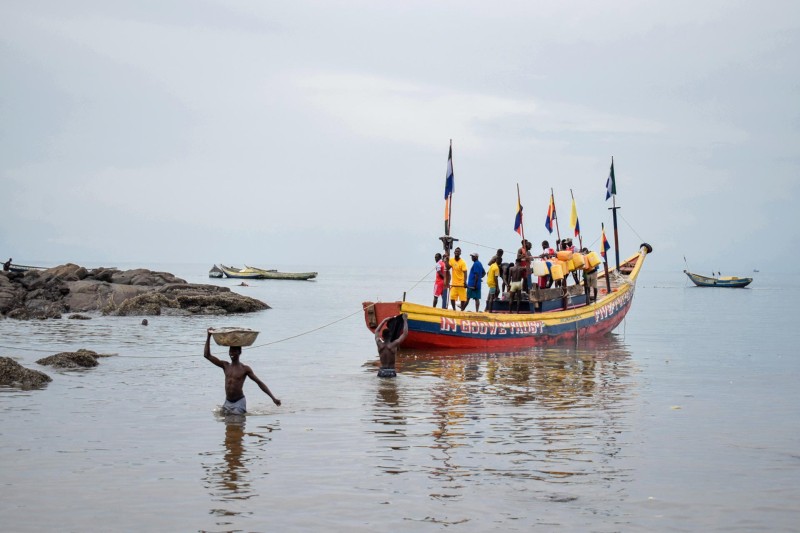On an early April morning, Senesi Koka, from a small fishing settlement on the remote Sherbro Island off the southwestern coast of Sierra Leone, set out to sea with three fellow fishermen in his wooden canoe. His hope was to catch enough fish to feed his family of three children.
Not far from the shore, the men found a promising spot and began setting up their nets. However, they were disrupted by a trawler deep in inshore waters, where industrial fishing is prohibited. The vessel nearly capsized the canoe, destroying Koka’s nets, and then sped off before he could note its name.
The 36-year-old fisherman watched as his nets, worth $700 — more than the country’s average annual salary — sank into the sea, taking his entire livelihood with it.
“Now I’m unable to go back to sea and put food on the table,” Koka said.
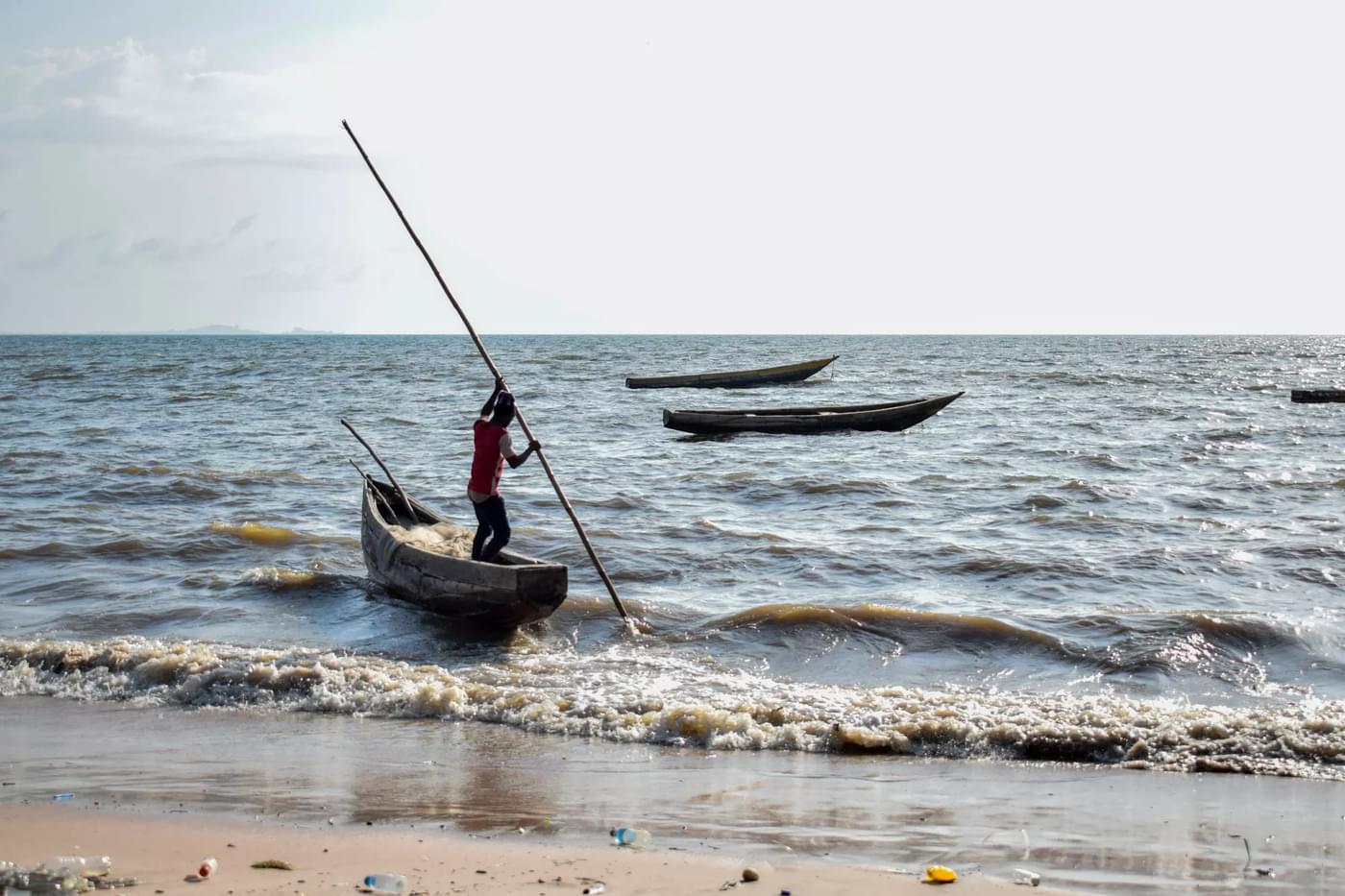 A fisherman heads out to sea on the coast in Banda, Sierra Leone. (Photo: Josef Skrdlik/OCCRP)
A fisherman heads out to sea on the coast in Banda, Sierra Leone. (Photo: Josef Skrdlik/OCCRP)
Sierra Leone, like many other coastal nations, designates an inshore exclusion zone, known as an “IEZ” — an area along the shore reserved exclusively for artisanal and recreational fishing. The purpose of the IEZ is to protect local fishermen and sustain the marine ecosystem. Coastal waters are critical to fish breeding and development, which industrial fishing can easily disrupt.
According to Sierra Leone’s 2018 Fisheries and Aquaculture Act, a single intrusion by an industrial vessel into the IEZ is punishable by fines starting at $1.5 million.
‘Trawlers Take All the Good Fish’
Sierra Leone’s Ministry of Fisheries has previously touted its “vessel monitoring system,” or VMS, and says improvements and an increased push to deploy the system has steadily reduced trawler incursions over the past few years.
Hindolo Momoh, head of the ministry’s fisheries surveillance division, said all vessels licensed to fish in Sierra Leone are now outfitted with VMS trackers. The VMS immediately triggers an alarm when it is turned off, and if it remains silent for more than two or three hours, the vessel is called back to port, he said. Government observers are also onboard every licensed trawler that sets out, Momoh said.
“The movement of every vessel is closely monitored,” Momoh told OCCRP.
But fishermen say intrusions are still common in spite of these measures.
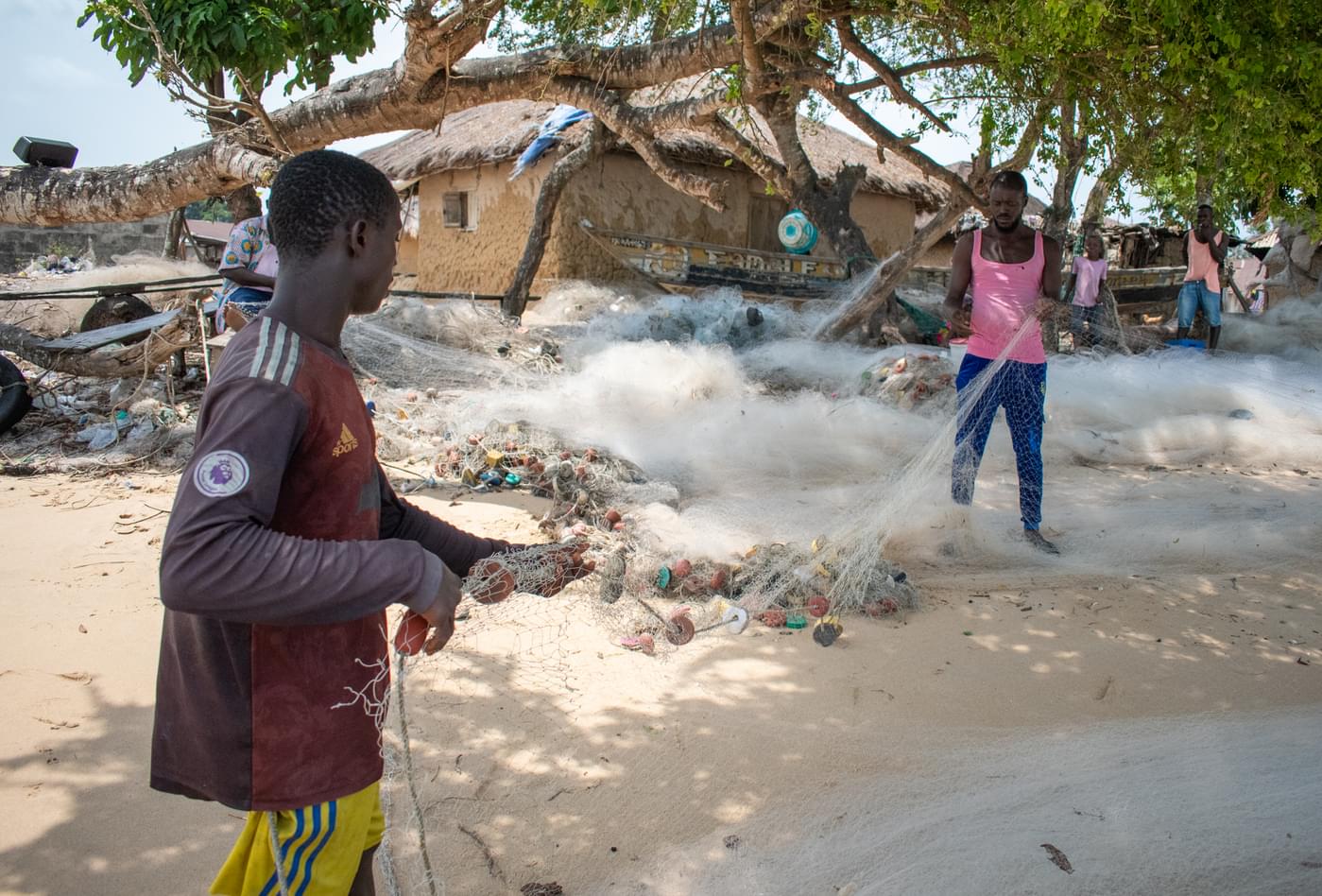 Fishermen repair their nets in Shenge, Sierra Leone. (Photo: Josef Skrdlik/OCCRP)
Fishermen repair their nets in Shenge, Sierra Leone. (Photo: Josef Skrdlik/OCCRP)
OCCRP spoke to over a dozen fishermen in nine different villages along the coast. In seven of those settlements, fishermen said they had seen industrial ships fishing just off the shoreline at least once in the last six months.
The fishermen reported diminishing yields in recent years, which they attributed to trawlers depleting fish populations.
“Trawlers take all the good fish,” Aruna Gble, a 51-year-old fisherman from the fishing settlement of Banda north of the capital Freetown, told OCCRP.
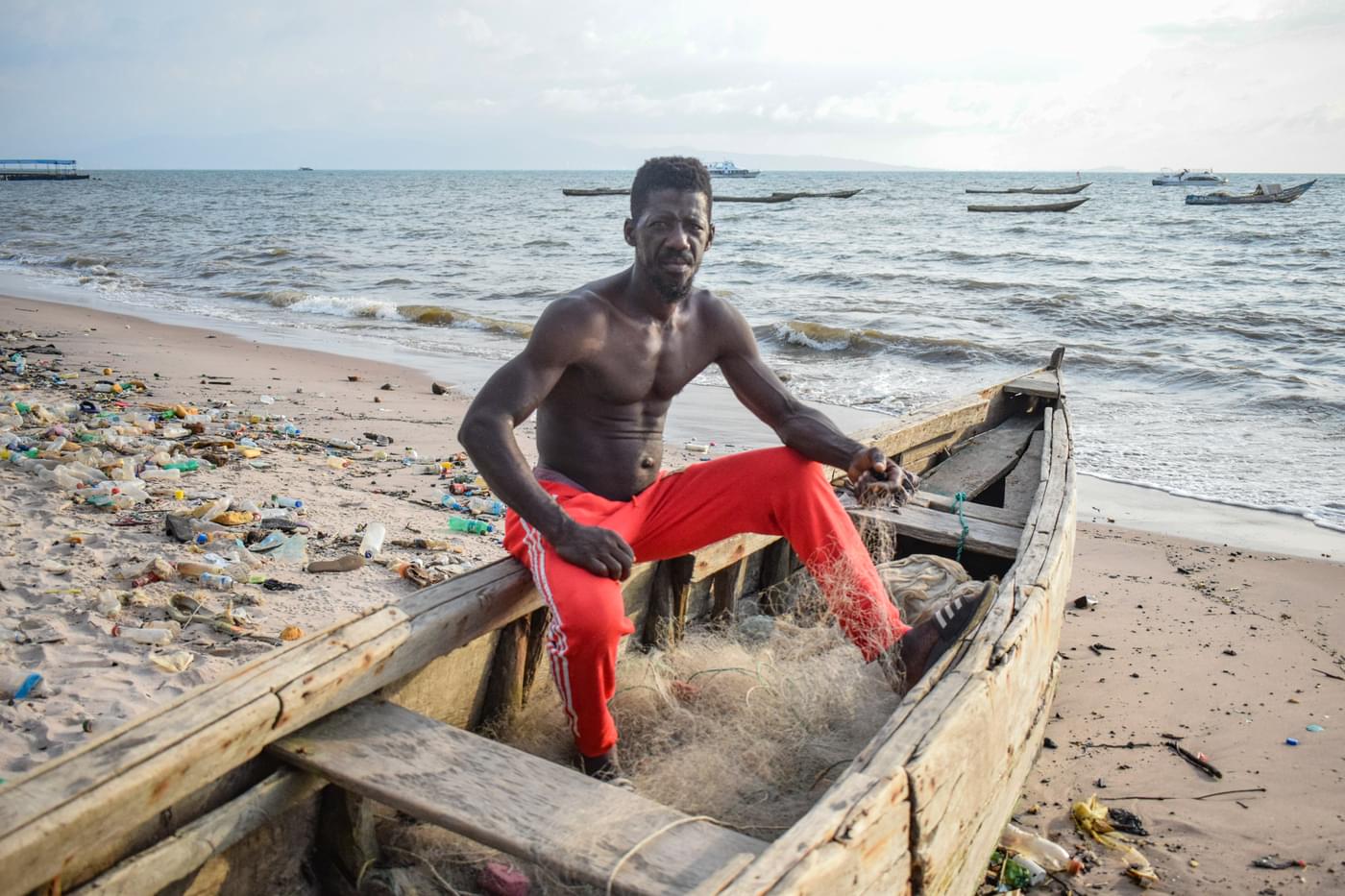 Aruna Gble, a fisherman from Banda, Sierra Leone. (Photo: Josef Skrdlik/OCCRP)
Aruna Gble, a fisherman from Banda, Sierra Leone. (Photo: Josef Skrdlik/OCCRP)
Suliman Kamara, another fisherman from Banda, said he had to work longer hours and fish further and further from the coast to come up with a big enough catch in recent years.
“Before, you could make enough to sustain the family, but not anymore,” Kamara said.
Thomas Turray, the president of Sierra Leone’s Artisanal Fishermen Union, which advocates for artisanal fishers’ interests, agreed that industrial trawlers were affecting fish stocks.
“We receive reports about trawlers fishing inshore all the time,” he said.
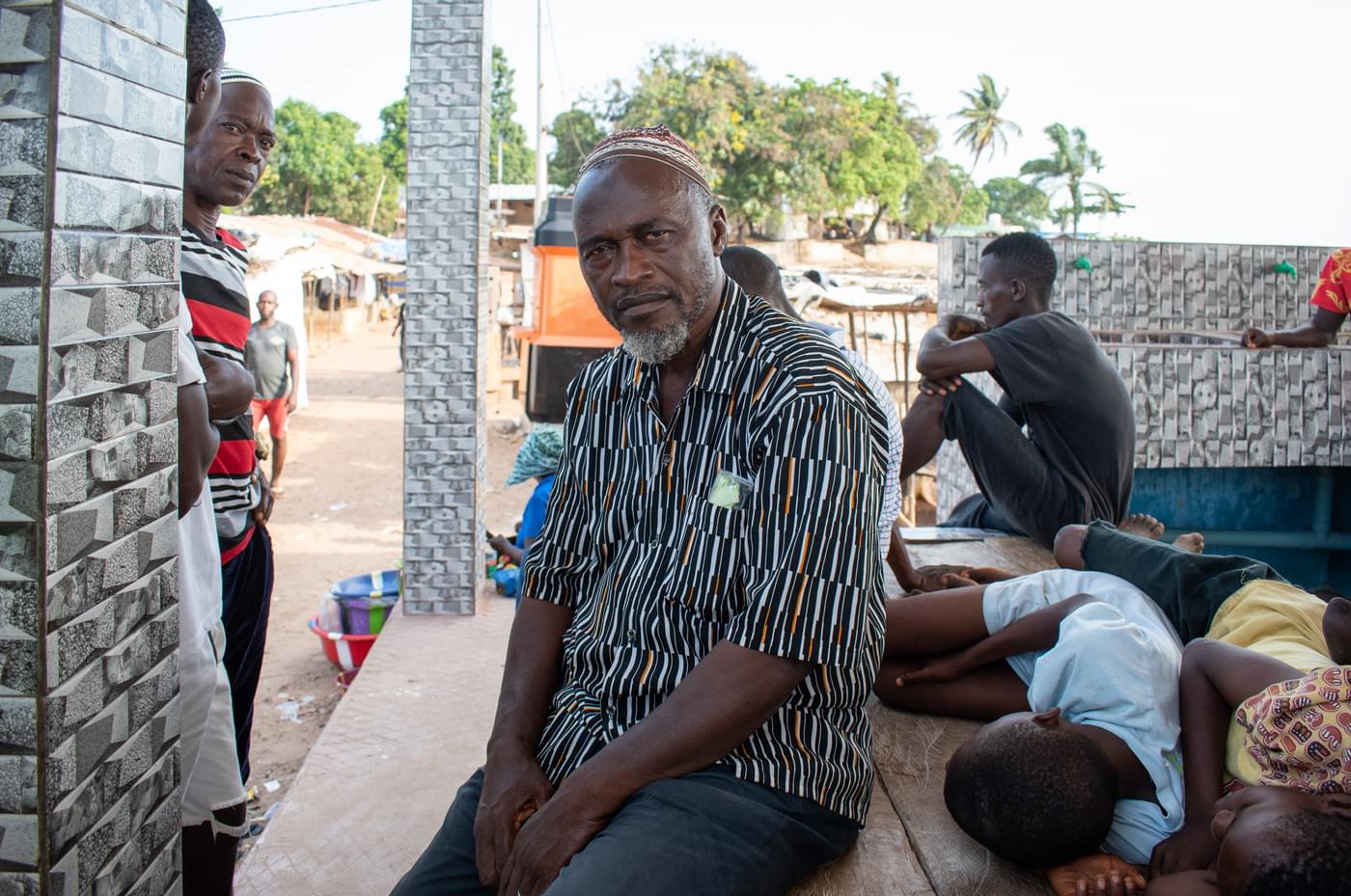 Thomas Turray, the President of the Sierra Leone Artisanal Fishermen Union. (Photo: Josef Skrdlik/OCCRP)
Thomas Turray, the President of the Sierra Leone Artisanal Fishermen Union. (Photo: Josef Skrdlik/OCCRP)
Further evidence suggests even ships equipped with the VMS system are still able to incur into the IEZ. In late April, a local captain, who asked only to be identified as “Ali,” was navigating his small motor boat along Sherbro Island, deep within the IEZ, when he spotted a trawler dragging a fishing net behind it.
Ali pulled out his mobile phone and started recording a video as he approached the trawler. He sent the footage, which is geolocated and dated, to OCCRP.
The video shows the crew hastily covering the vessel’s name with a fishing net, but the name “Kepa 5” remains visible on the ship’s other side. The footage also shows that the boat had a VMS device.
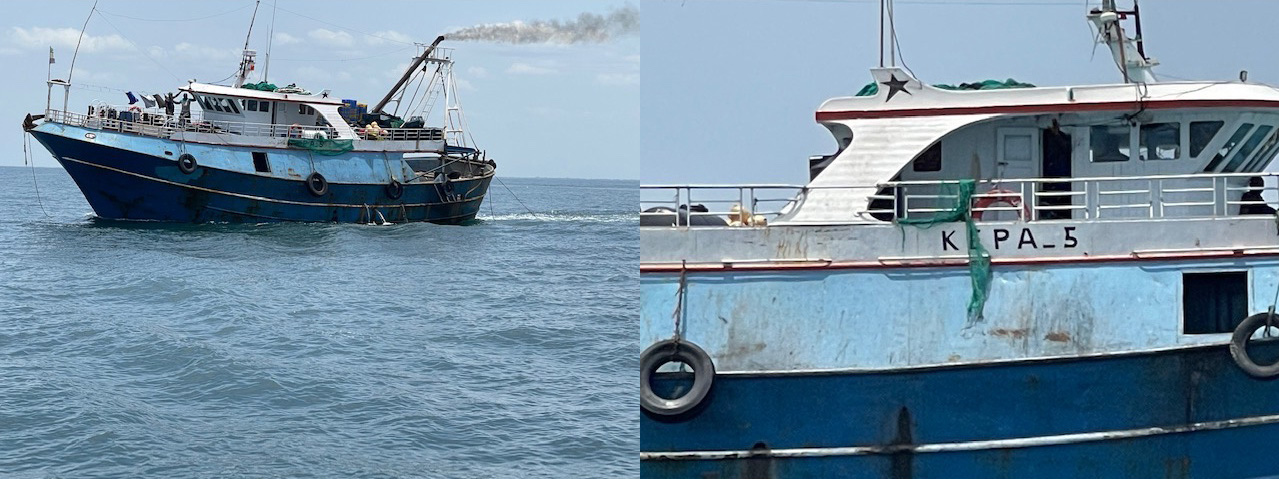 Kepa 5, the trawler that was spotted near Sherbro Island. (Photo: Josef Skrdlik/OCCRP)
Kepa 5, the trawler that was spotted near Sherbro Island. (Photo: Josef Skrdlik/OCCRP)
A manager from Whitepole, a local fishing and fish processing company, confirmed that the company owned the Kepa 5. But the manager, who gave his name only as “Emil,” denied that it had ventured into prohibited waters. He said that, in addition to the ship’s VMS device, it also had a government observer onboard.
“It is not possible that Kepa 5 was fishing in the IEZ,” the manager said.
Khadijatu Jalloh, the fishing ministry’s director of fisheries, declined to answer specific questions about Kepa 5’s apparent incursion into the IEZ, saying that illegal industrial fishing is not a problem in Sierra Leone.
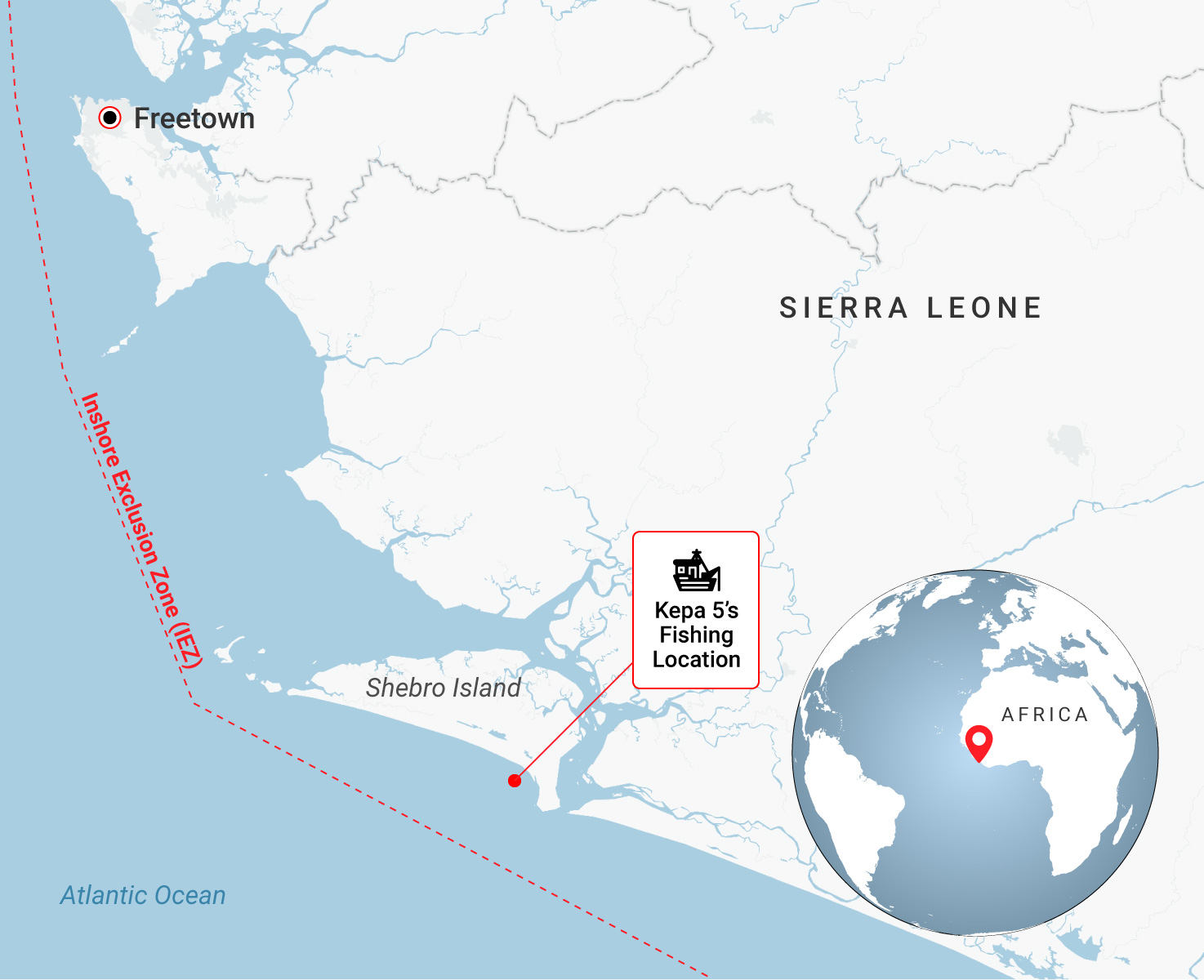 Kepa 5’s Fishing Location, recorded on April 19 at 14:37 GMT. (Photo: Edin Pašović/OCCRP)
Kepa 5’s Fishing Location, recorded on April 19 at 14:37 GMT. (Photo: Edin Pašović/OCCRP)
‘Some Fishing Companies Are Considered Untouchable’
Turray, the fishermen’s union head, said that given how strong the deterrents were on paper, the only way that industrial fishermen would dare break the rules is if they knew the government was unlikely to punish violations.
“If I, as a captain, know that my vessel is constantly tracked and I face a fine of $1.5 million, why would I ever even attempt to fish inshore?” he wondered.
In addition to the VMS system, government observers are also supposed to monitor whether industrial vessels are complying with the law.
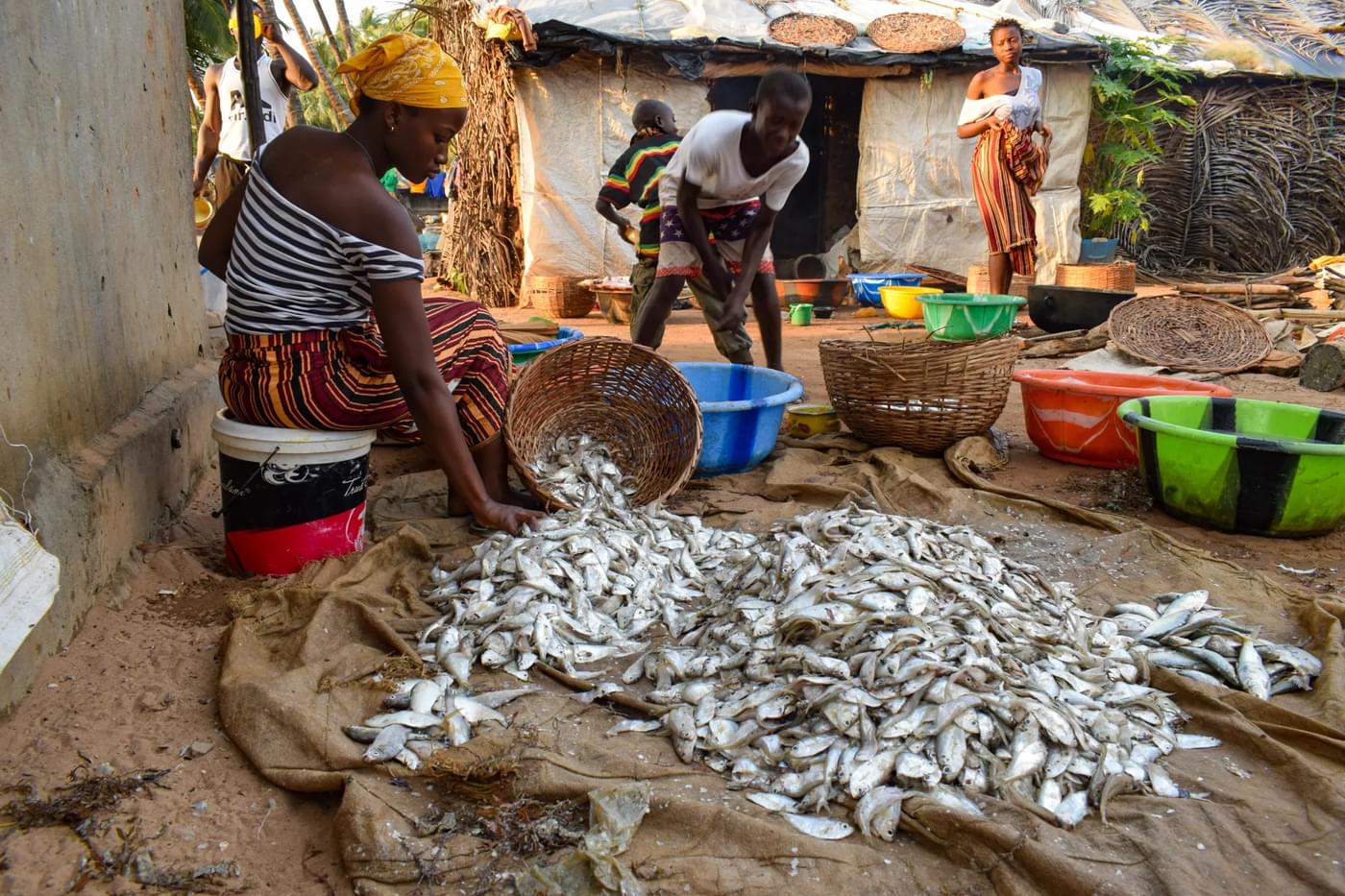 Fishers with their catch in Banda, Sierra Leone. (Photo: Josef Skrdlik/OCCRP)
Fishers with their catch in Banda, Sierra Leone. (Photo: Josef Skrdlik/OCCRP)
But in practice, the system works poorly, said Salieu Sankoh, a local fishing expert and the former director of the West Africa Regional Fisheries Program in Sierra Leone, an initiative concerned with fisheries governance.
Sankoh said that ministry officers he spoke with reported frequent and obvious errors in observers’ records, with some supposed GPS coordinates even showing vessels fishing on land.
“Some fishing companies are considered untouchable,” Sankoh said.
An official from the ministry’s vessel monitoring center, who asked to speak anonymously to protect his job, echoed Sankoh’s assessment. Rather than confirming violations, observers often tried to dispute them, the official said.
“If your monthly salary is $50, it is not difficult to buy you,” he said.
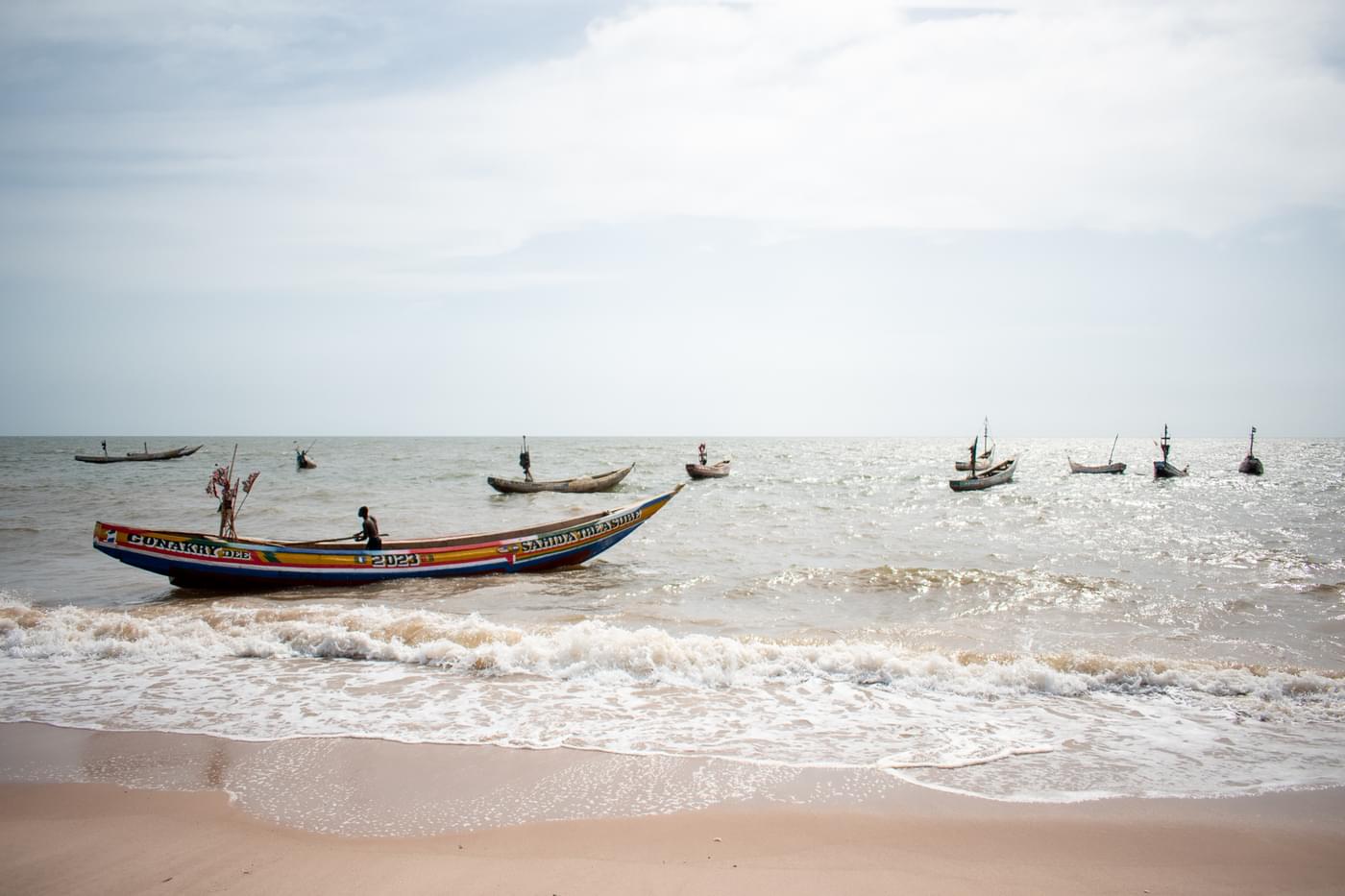 Fishing boats in Konakridie, Sierra Leone. (Photo: Josef Skrdlik/OCCRP)
Fishing boats in Konakridie, Sierra Leone. (Photo: Josef Skrdlik/OCCRP)
Patrolling has proven similarly ineffective. Sierra Leone has just one patrol boat, which is consistently seen anchored in the capital Freetown. It is expensive to operate and patrols conducted in recent years have had limited success.
“Whenever the boat was about to go to sea, (the information) somehow leaked, and all the fishing vessels would be seen coming to the port,” Sankoh said.
‘They Never Listened to Me’
As trawlers continue to plunder the IEZ, other challenges are emerging, multiplying the threat to the marine ecosystem.
Sierra Leone’s population has nearly doubled since 2000, and the population of artisanal fishermen has correspondingly increased. The number of registered artisanal boats rose from 8,000 in 2003 to over 14,000 estimated to be operating now, according to Sankoh.
In the face of intensifying competition and declining catches, fishermen have been increasingly observed fishing in marine protected areas and shallow waters, which are critical for fish breeding. They have also resorted to using unsustainable fishing gear, such as nets with small mesh sizes.
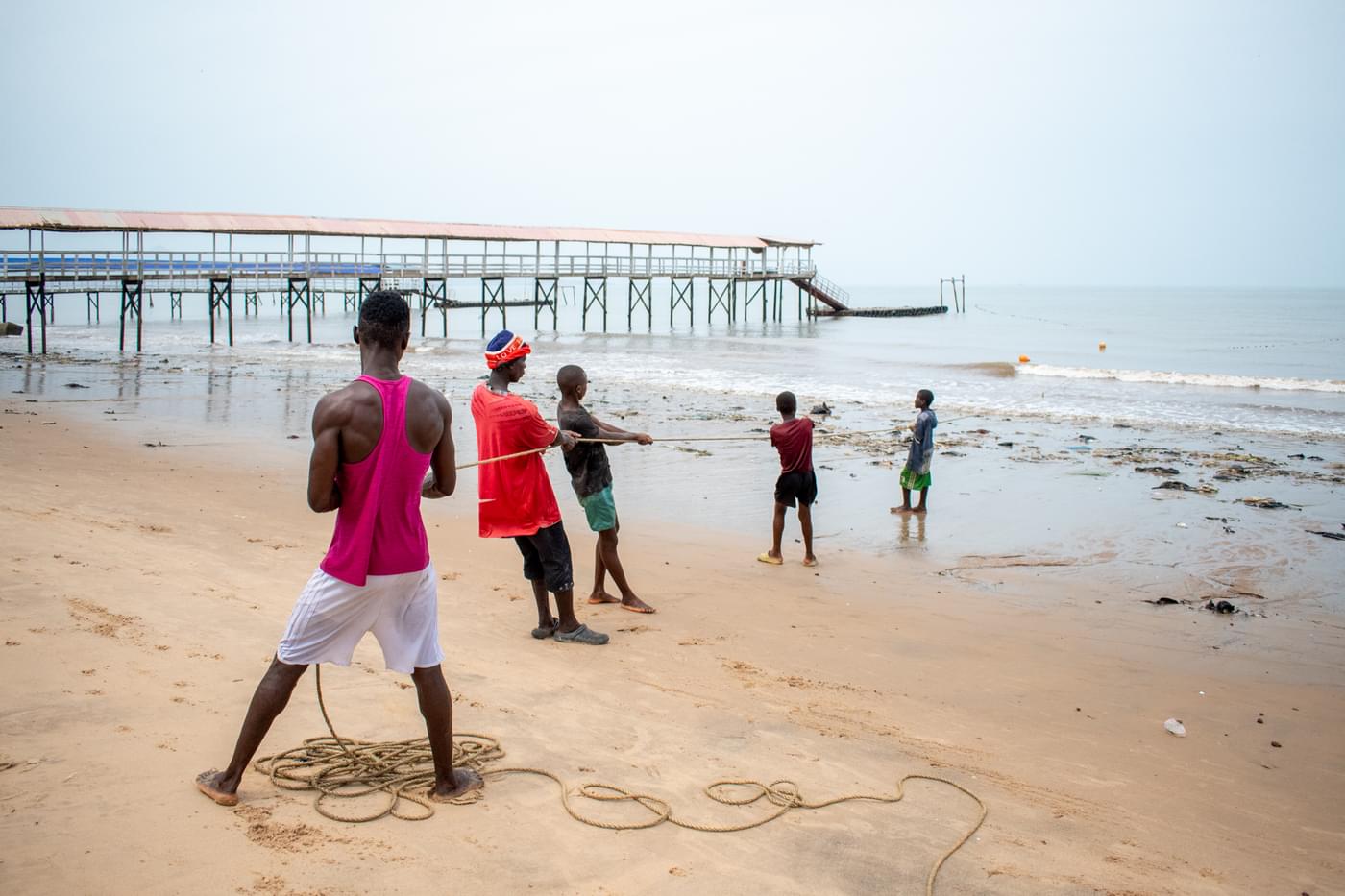 Fishermen practicing beach seining, an environmentally harmful fishing method, in Lungi, Sierra Leone. (Photo: Josef Skrdlik/OCCRP)
Fishermen practicing beach seining, an environmentally harmful fishing method, in Lungi, Sierra Leone. (Photo: Josef Skrdlik/OCCRP)
With their livelihood increasingly under threat, fishermen expressed deep frustration over what they viewed as the ministry’s inaction.
Abubakar Turray from the fishing town of Konakradie in northwest Sierra Leone told OCCRP that he lost everything when a trawler cut his net at the end of April.
“We chased them to ask for compensation,” Turray said. “They splashed us with boiling water.”
Koka, the other fisherman who lost his nets to a trawler in April, said it was the third time his nets have been destroyed by industrial fishermen. This time, he didn’t even try to report the incident.
“They never listened to me,” he said.
